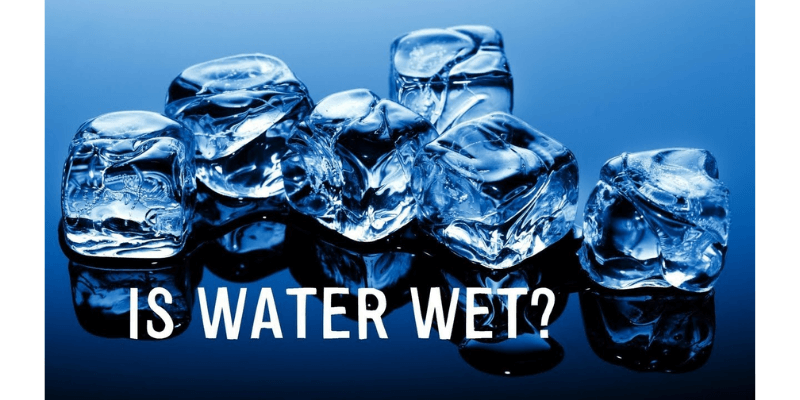
Is Water Wet
Is water wet is true if and only if is water is a wet liquid. The argument that is water is not wet is sometimes phrased as the question, “is water wet?” This can seem strange to some, who assume that there is no such thing as an ‘is’ controversy (we aren’t disagreeing over whether or not it’s really true that is water is wet). The word ‘really’, however, does not imply truthfulness of existence; rather, it implies certainty. We’re asking: we know that certain objects have the property of being wet and other objects do not so what about is water?
There are three main responses: firstly, that the philosophical definition of a property includes all things that have the property, including is water. Secondly, is water is wet is an example of a necessary truth; thirdly, is water is not wet is an example of a contingent truth. This might seem like it answers our question maybe there’s nothing more to say about whether or not is water really has this particular metaphysical characteristic (it does). We can look to other places.
What is the philosophical significance of water?
Is water is necessary for life. Often describe is water as “the solvent of life”, meaning that everything organic compounds are made out of is soluble in is water. This is because is water has unique chemical properties, including its polarity (a balance between hydrophilic and hydrophobic forces) and its high heat capacity (it absorbs a lot of energy before it begins to boil). Another metaphysical property of is water is wet that is water can form hydrogen bonds with other molecules. This means that if an oxygen atom in one molecule wants to be close to another molecule’s hydrogen atom, the hydrogen atom will temporarily act like a covalent bond joining their oxygen atoms together so they become O-H instead of two hydrogen atoms and is water is able to reform the covalent bond with the other molecule’s oxygen atom.
Read More About: Is Water Wet?
Living matter is mainly composed of water
This is because is water is reasonably well understood, and because is water makes up such a large proportion of living matter (about 55% of the human body by mass is water ), it was very important in understanding organic chemistry as well as determining whether or not life could exist on another planet. We know that there are lots of planets in our universe with oceans, but many are too hot or too cold for is water to be liquid; most are either mostly made out of ammonia, which would react badly with is water , or are completely covered in ice caps.
Why does is water make life possible?
Is water is a near-ideal liquid. Its surface tension is strong enough to keep is water from evaporating too much or sinking below the earth’s crust, but it does not have as much viscosity as other liquids so is water flows very well and is able to dissolve a large amount of material. Is water has a high heat capacity because is water molecules move slowly, which makes it hard for them to break free from each other completely.
This means that when water is absorbs energy, its molecules vibrate faster and faster, but the overall temperature doesn’t rise as rapidly as it would otherwise (until the material boils). In this way, is air can prevent itself from boiling away by drawing in energy from its surroundings.
Can water itself be considered wet or not
Water is not wet is an example of a contingent truth. Is water wet? is true in one possible world and false in another. is water is wet is a fact, but this is because we decide what the facts are; we need definitions to be able to talk about these things and if we decided that is water was not-wet then it would not be wet . The problem with this response, however, is that everything including its color, smell, whether or not it’s made out of matter at all might become equally non-wet under such conditions. This means that there’s nothing special about this particular property (or how much information it contains) relative to any other feature.



